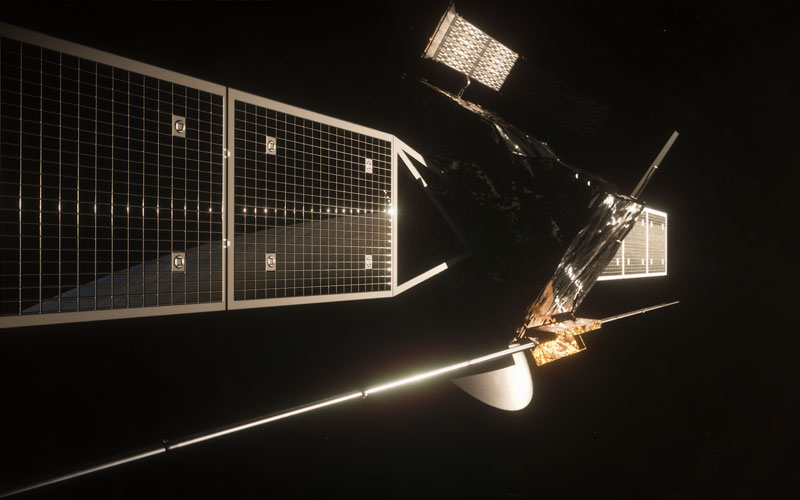
The European Space Agency has awarded Thales Alenia Space a €367 million contract to build the EnVision probe, which will be tasked with exploring Venus.
EnVision was selected for development by ESA’s Science Programme Committee in June 2021 as the agency’s fifth M-class mission. This category of ESA exploration missions features a cost cap of around €500 million.
The goal of EnVision is to provide a comprehensive view of Venus. According to ESA, it will be the first mission to the planet to “investigate Venus from its inner core to its upper atmosphere, characterizing the interaction between its different envelopes: atmosphere, surface/subsurface, and interior.”
“No other mission has ever attempted such a comprehensive investigation of our remarkably inhospitable neighbour,” said Prof. Carole Mundell, ESA’s Director of Science. “EnVision will answer fundamental questions about how a planet becomes habitable – or the opposite.”
On 28 January, ESA announced that it had tapped Thales Alenia Space to build and deliver the EnVision probe. With the contract now signed, the company is expected to finalize the spacecraft’s design and then begin its construction. According to Thales Alenia Space, the spacecraft system requirements review is set for 2025, followed by full authorisation to proceed with Phase C/D in June 2026, which includes qualification and production.
While the ESA press release didn’t mention a launch date, Thales Alenia Space stated that the launch is expected in November 2031.
EnVision will be equipped with several instruments for its mission. ASI, DLR, BelSPO, and CNES will respectively provide the spacecraft’s Subsurface Sounding Radar (SRS) and the VenSpec-M, VenSpec-H, and VenSpec-U spectrometers. NASA will supply the VenSAR (Synthetic Aperture Radar) instrument, as well as Deep Space Network support. The mission will also include a radio science experiment, which will be supplied by France with contributions from Germany.

